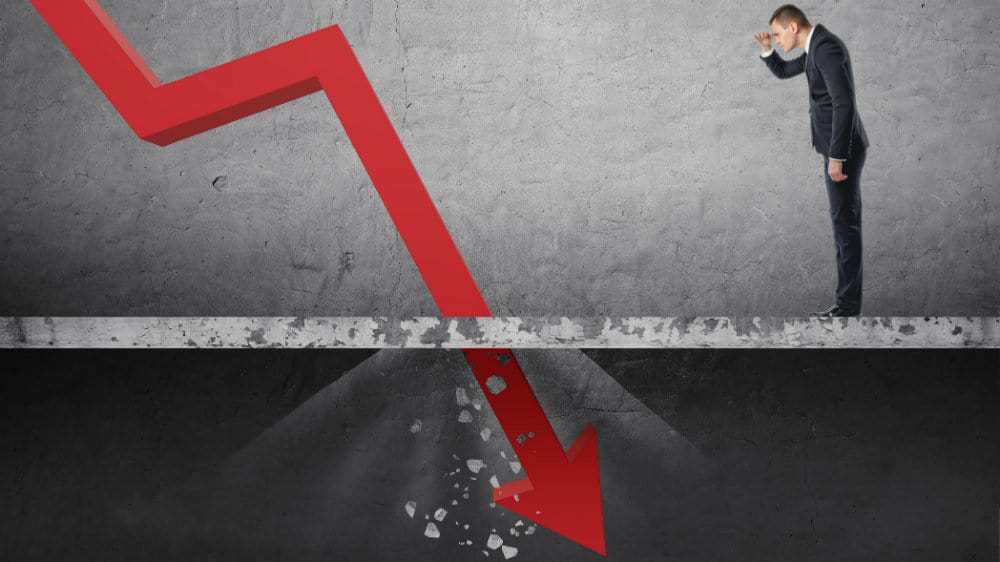There were concerns over a US stock market crash on 3 February, with the Nasdaq 100 posting its largest one-day fall for 20 years. UK stock markets have also been on a roller coaster in the last few months, with the FTSE 100 falling by nearly 4% at one point during January.
So should you sell your shares given fears over a global stock market crash? Jack Turner, Investment Manager at 7IM, advises investors against “knee-jerk reactions and portfolio churning”. He believes investors should be selective given the “myriad of risks”, but “the long-term view from our perspective is to keep going.”
I’ll explain why stock markets are falling, what happened after previous stock market crashes and what to consider before you hit the sell button on your shares.
[top_pitch]
Why are stock markets falling?
Concern over rising inflation rates has hit the UK and US stock markets in recent months. The Bank of England has just raised interest rates to combat inflation, and the US Federal Reserve is likely to follow suit in March. And there are also fears over the long-term economic cost of the pandemic and geo-political tensions in Ukraine.
On the whole, rising interest rates have a negative impact on the stock market. Companies may face reduced demand from consumers, who may have less money to spend if their cost of borrowing increases.
But one of the key factors has been higher interest rates hitting valuations of high-growth companies due to the impact on their future cash flows. This has particularly affected US technology shares that have enjoyed a long run of stellar share price growth.
Shares in Facebook owner Meta plummeted 26% this week, the largest ever single-day fall in market value for a US company. While The Guardian reported that the richest billionaires “lost more than $50 billion (£37 billion)” last week, “as their fortunes … dropped in a ‘white knuckle’ rout on tech shares.”
What happened after previous stock market crashes?
IG analysed the largest ‘peak to trough’ drops in the FTSE 100. The largest fall was 52.6% in March 2003 when the ‘dotcom bubble’ burst. There were similar ‘crashes’ in 2009 after the global financial crisis and in March 2020 when the pandemic hit.
|
Trough date |
“Peak to trough” drop |
Return in the following 12 months |
|
March 2003 |
-52.6% |
+40.6% |
|
March 2009 |
-49.3% |
+64.1% |
|
March 2020 |
-36.6% |
+22.3% |
|
November 1987 |
-35.9% |
+16.6% |
IG believes that investors “should reasonably expect the stock market to decline by more than 30% every ten years” but that selling your shares to prevent further losses is “generally not a good strategy”. The table above shows that the FTSE 100 recovered a large proportion of its losses in the following 12 months.
Investing over the long term enables investors to ride out the peaks and troughs in the stock market. IG calculates that the FTSE 100 has delivered an average annual return of 8.9% (since 1984), with its highest annual price return being 35% in 1989 and its lowest being -31% (a loss) in 2008.
Which shares might hold up well in a downturn?
Jack Turner from 7IM believes that “a more robust consumer-driven cycle will see different winners emerge.” He suggests the healthcare sector is still trading at a discount and is well placed to take advantage of ageing demographics. He also supports investing in sustainable companies to address the rising threat of climate change.
Right now, British companies are trading at attractive valuations compared to their US peers. The FTSE is currently trading on a price-earnings ratio (a measure of underlying value) of 15 compared to 25 for the Nasdaq (US). Sue Noffke, Head of UK Equities at Schroders, describes UK equities as “unloved, undervalued and high yielding; an ideal scenario for stock pickers”.
Shares in defensive companies in sectors including food and drink, healthcare and utilities typically perform well during market downturns. Why? Because demand for essential goods and services tends to hold up better than companies selling discretionary products. Defensive companies are also some of the most reliable dividend payers.
Shell recently reported bumper profits, with a 55% increase in its share price over the last 12 months (although it’s still below pre-pandemic levels).
However, past performance is not an indicator of future performance. Investors should carry out their own research.
[middle_pitch]
What are the best share dealing platforms?
If you want to learn more about buying and selling shares, it’s worth reading our beginner’s guide to share dealing.
If you’re looking for a low-cost share dealing account, why not take a look at our list of top-rated providers? The FinecoBank Multi-Currency Trading Account charges just £2.95 for buying and selling shares. High volume dealers might like to consider Interactive Investor’s Super Investor plan, which charges £3.99 for each share deal (on top of a monthly fee).







